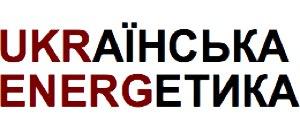Ukrainian model of Public Service Obligations significantly distorts the electricity market
The reform of the electricity market in Ukraine was conceived according to the European model and provided primarily for the creation of a competitive, transparent and efficient market, normalization of prices and improvement of the investment climate in the sector, strengthening consumers through free choice and easy supplier change.
It is clear that it will not be possible to ensure a fast, high-quality and painless transition from previous to new European market model. This requires time and an agreed action program, an action plan that will be clear to all market participants. At present, one can see mainly the reactive actions of public authorities in response to certain market failures resembling patching the holes and extinguishing the fires. There are a lot of regulatory restrictions on prices and trade in various segments of the wholesale market, electricity imports, Public Service Obligations (PSO) and others. In the conditions when the immature market is not yet capable of effective self-regulation, such government interventions are permissible and sometimes even necessary. But so far there is a clear lack of system and balance of action, as well as a vision of gradual market development.
The mechanism of Public Service Obligations in the companies operating on the electricity markets in order to ensure the public economic interest is generally acceptable in the European practice. It is permitted by the law, in particular Directive 2019/944 on common rules for the internal electricity market. At the same time, there are clear requirements for PSO. Firstly, the mechanism must be transparent, applied on a temporary basis and in clearly defined exceptional circumstances. Secondly, PSO should not distort the market competition and restrict an access of energy companies to consumers and vice versa. If the first group of the requirements for PSO in Ukraine can be explained by the need to “protect vulnerable consumers”, the second group has clear discrepancies.
For example, the preamble to Directive 2019/944 clearly states that PSO in the form of regulated electricity supply prices fundamentally distorts the market, often leading to financial imbalances, restricting consumer choice, deteriorating signals for energy efficiency and investing in energy efficiency measures, service deterioration, lower level of consumer involvement and satisfaction of their needs, restriction of competition and restraint of introduction of innovative products and services on the market. Given the above, the countries are encouraged to use other tools, including targeted social measures to ensure the affordability of electricity for the population.
The government’s recent initiative to change the PSO mechanism in terms of reduction of mandatory electricity sales of NJSPC “Energoatom” from 85% to 80% and the permission of SE “Guaranteed Buyer” and NJSPC “Energoatom” to trade on the market of bilateral agreements is right and necessary step, but is unlikely to completely solve the accumulated problems and financial imbalances on the market. It is important that this first step has a systematic continuation in the form of transition to financial model of PSO, along with the development of a plan to gradually bring electricity prices for the population to market levels.
Since electricity prices are the same for the entire population throughout Ukraine, the current PSO model protects not only economically vulnerable but also wealthy consumers, which seems economically unjustified. Moreover, prices for households have not changed since March 1, 2017. In addition, Ukraine has long had a dual system of social protection – low electricity prices and targeted subsidies. According to the European best practice, it is advisable to gradually bring prices for the population to market levels, and to support economically vulnerable consumers through direct monetized subsidies to pay for energy and other utilities. This approach will contribute to gradual market normalization, as well as provide the correct price signals for investors and consumers and more rational economic behaviour of all market participants. Finally, it will increase competition in the wholesale and retail segments of the market and introduce the possibility of choosing and changing the suppliers by household consumers.




